
A lesson on applying digital transformation technology and artificial intelligence at Mac Dinh Chi Secondary School (Tan Hoa Ward, Ho Chi Minh City)
PHOTO: VU QUOC DOAN
Integrate artificial intelligence into subjects instead of keeping it as a separate discipline.
On October 25, the Central Propaganda and Mass Mobilization Commission coordinated with Saigon Giai Phong Newspaper to organize a discussion "Promoting AI application in education and training - Benefits and challenges".
Assessing the urgency of promoting the application of artificial intelligence (AI) in education and training, Dr. Le Thi Mai Hoa, Deputy Head of the Education Department of the Central Propaganda and Mass Mobilization Committee, stated that the Party and State have issued many policies on developing AI technology in education and training, such as: Prime Minister's Decision No. 12 on the National Strategy for Research, Development and Application of Artificial Intelligence until 2030; Politburo Resolution No. 57 on breakthroughs in the development of science, technology, innovation and national digital transformation; Politburo Resolution No. 71 on breakthroughs in the development of education and training…
Based on that, Dr. Mai Hoa made six recommendations: Develop a national AI literacy program for students and teachers at all levels. Promote training and professional development for teachers in digital skills and ethical use of AI. Integrate AI into subjects instead of separating it into a distinct subject. Develop a regulatory framework on academic ethics and the use of AI in research and teaching. Invest in developing digital infrastructure and AI platforms suitable for Vietnamese data and language. Promote communication and awareness campaigns about AI in education and training to educational institutions, secondary schools, localities, learners, teachers, and the education community.
More than 87% of secondary school students have knowledge about AI, 76% of teachers have used AI in teaching
At the seminar, Professor Le Anh Vinh, Director of the Vietnam Institute of Educational Sciences , said that the Ministry of Education and Training is currently building an AI education program framework for students from grades 1 to 12.
Previously, according to a survey on the readiness of Vietnamese students for AI conducted by this institute at the end of 2024, over 87% of junior high school students had some understanding of AI. However, only 17% of students applied AI very effectively, 50% applied it effectively, and the remaining more than 30% felt it was average or ineffective. Some of the difficulties students faced when using AI included: lack of knowledge and skills in AI; lack of equipment and technology; lack of guidance from teachers, etc.
For teachers, the survey results show that 76% reported having used AI in teaching. Of these, a worrying percentage (30.95%) expressed doubts about its effectiveness; and over 20% of teachers lacked confidence in applying AI in education.
From a research perspective, Professor Le Anh Vinh argues that current technology has not yet completely solved the problems of education, but only addressed the technological challenges. If these tools are not used intelligently and for the right purpose, their application will not yield practical results for teaching and learning.
3 main pillars when implementing AI in learning
Based on the practical experience of teachers and students using AI in teaching and learning, representatives from the Vietnam Institute of Educational Sciences proposed that the implementation of AI in general education should be based on three main pillars: a consistent policy framework (ensuring ethical requirements, data security, and long-term orientation); comprehensive and flexible curricula and learning materials; and human and financial resources.
Sharing at the seminar on breakthrough solutions for AI applications in general education, Ms. Nguyen Phuong Lan, General Director of EMG Education Group, said that promoting AI applications is based on 3 strategic pillars: English training; digital capacity training; core technologies applying AI combined with Metaverse.
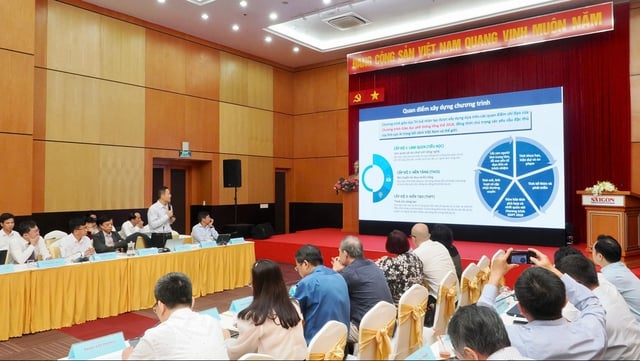
Delegates speaking at the seminar
PHOTO: BAO CHAU
Infrastructure and a qualified teaching staff are needed.
As one of the first primary schools in Ho Chi Minh City to use the Digital Skills Room, Ms. Do Ngoc Chi, Principal of Nguyen Binh Khiem Primary School (Sai Gon Ward, Ho Chi Minh City) said that to promote AI application, the school started with fundamental steps such as building infrastructure, training teachers, and combining with innovation in teaching and learning methods.
Nguyen Binh Khiem Primary School has invested in a 48m² "Digital Skill Classroom," featuring an open, flexible, and modern design. The room is equipped with 40 tablets, a Smart TV, high-speed internet, a sound system and air conditioning, along with posters, slogans, and QR codes for learning about online safety and digital citizenship principles. This space is not just a technology classroom, but also a valuable life skills education environment in the digital age – where students learn to master technology, rather than being controlled by it.
In addition, the principal of Nguyen Binh Khiem Primary School stated that the school organizes training for administrators and teachers on utilizing digital learning materials and AI tools to support teaching; applying LMS platforms, Microsoft Teams, and online classroom management software; and integrating digital citizenship skills into lessons and experiential activities. In particular, teachers are encouraged to shift from knowledge-transmission to competency-building teaching methods, using technology and AI as companions to help students develop critical thinking, creativity, and civilized behavior in the online space.

Students of Nguyen Binh Khiem Primary School (Sai Gon Ward, Ho Chi Minh City) in the Digital Skill Classroom
Photo: Nhat Thinh
Ms. Pham Thi Be Hien, Principal of Le Hong Phong Specialized High School (Cho Quan Ward, Ho Chi Minh City), said that the school has been teaching artificial intelligence for 7 years now. Initially, the school offered two levels: a basic course for 10th-grade students and an advanced, in-depth course for students interested in AI research. After some time, the program was adjusted to three levels: basic; advanced - application; and advanced - in-depth research for students aiming to pursue AI studies at the university level.
Based on practical implementation, Ms. Pham Thi Be Hien believes that the biggest difficulty currently is the shortage of teachers with formal training in AI. This is a problem that needs to be solved, and solved soon. "Currently, the school has chosen to contract with lecturers from universities and engineers specializing in AI. At the same time, we are organizing in-depth training for the school's computer science teachers," Ms. Hien said.
We propose the early issuance of guidelines for implementing the AI strategy in education.
At the seminar, Associate Professor Huynh Thanh Dat, Member of the Central Committee of the Communist Party of Vietnam and Deputy Head of the Central Propaganda and Mass Mobilization Department, suggested that the Ministry of Education and Training and the Ministry of Science and Technology should soon advise the Government to issue guiding documents for implementing the AI strategy in education; especially an AI ethics framework in schools and AI programs and materials for the secondary school level.
In addition, Mr. Dat proposed that the Government and relevant ministries and agencies research and establish a Digital Transformation Fund for Higher Education – a strategic investment fund with groundbreaking mechanisms and policies to attract social resources and encourage businesses to invest in digital infrastructure and AI solutions in education.
Higher education institutions need to proactively train and lead in innovation, learning from successful models instead of passively depending on external solutions.
Furthermore, the business community needs to shift its mindset, moving from a passive "employer" role to that of a "co-creator" of human resources. News agencies and the media need to continue their mission of disseminating information and raising awareness about both the benefits and challenges of AI, fostering social consensus and a proactive attitude among the public, ready for integration.
Source: https://thanhnien.vn/6-khuyen-nghi-ve-ung-dung-tri-tue-nhan-tao-trong-giao-duc-185251025154150114.htm





![[Photo] Closing Ceremony of the 10th Session of the 15th National Assembly](/_next/image?url=https%3A%2F%2Fvphoto.vietnam.vn%2Fthumb%2F1200x675%2Fvietnam%2Fresource%2FIMAGE%2F2025%2F12%2F11%2F1765448959967_image-1437-jpg.webp&w=3840&q=75)

![[Photo] Prime Minister Pham Minh Chinh holds a phone call with the CEO of Russia's Rosatom Corporation.](/_next/image?url=https%3A%2F%2Fvphoto.vietnam.vn%2Fthumb%2F1200x675%2Fvietnam%2Fresource%2FIMAGE%2F2025%2F12%2F11%2F1765464552365_dsc-5295-jpg.webp&w=3840&q=75)
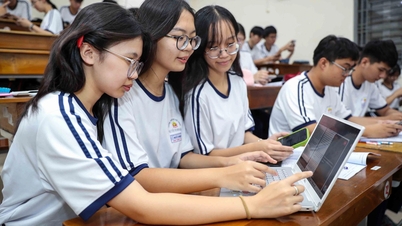


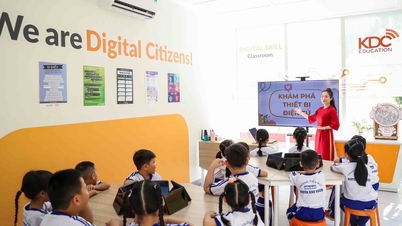


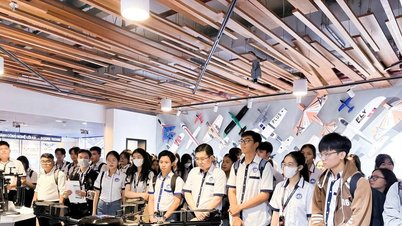
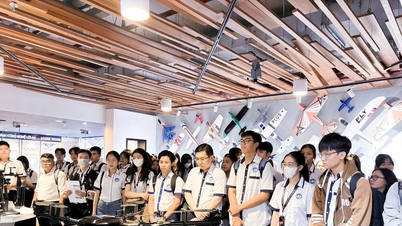

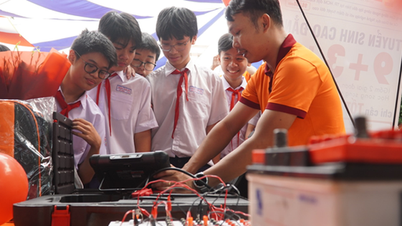


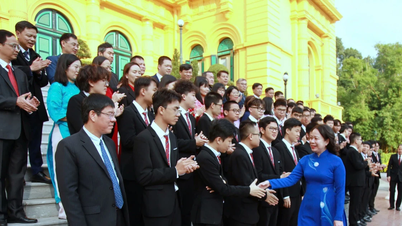

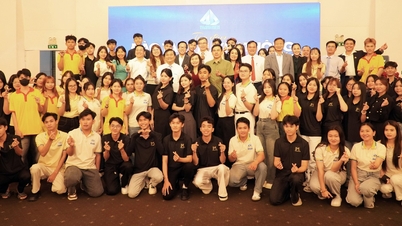



































![[OFFICIAL] MISA GROUP ANNOUNCES ITS PIONEERING BRAND POSITIONING IN BUILDING AGENTIC AI FOR BUSINESSES, HOUSEHOLDS, AND THE GOVERNMENT](https://vphoto.vietnam.vn/thumb/402x226/vietnam/resource/IMAGE/2025/12/11/1765444754256_agentic-ai_postfb-scaled.png)












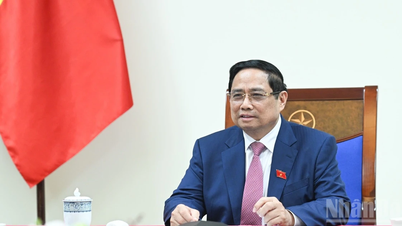
















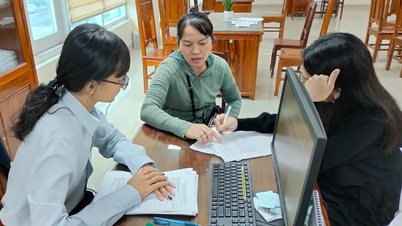




















Comment (0)